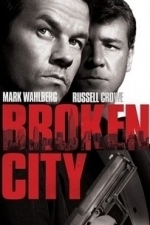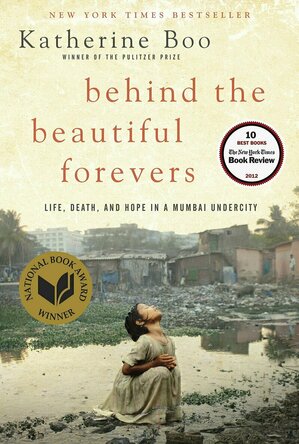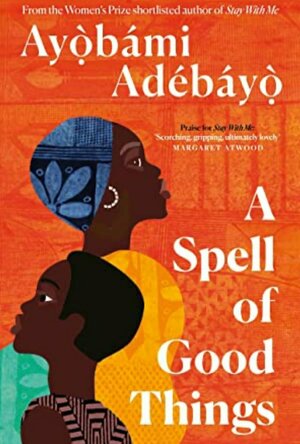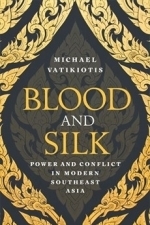
Blood and Silk: Power and Conflict in Modern Southeast Asia
Book
A powerful examination of the conflicts in Southeast Asia that risk destabilising its remarkable...
History politics
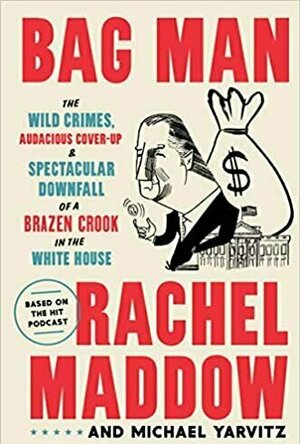
Bag Man
Rachel Maddow and Michael Yarvitz
Book
Is it possible for a sitting vice president to direct a vast criminal enterprise within the halls of...
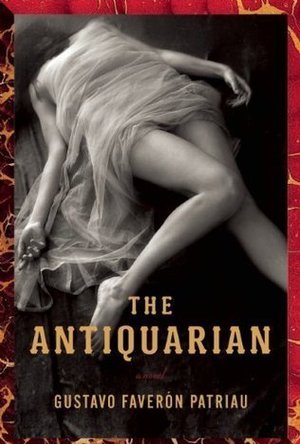
The Antiquarian
Book
A Los Angeles Times Best of Summer pick An Amazon Best Book of the Month (Mystery, Thriller &...
Gareth von Kallenbach (980 KP) rated Broken City (2013) in Movies
Aug 7, 2019
fictional New York, portraying its mayor and a tormented cop, respectively. This film is very political, and it drives to the heart of an issue found all around our country: corruption at every level, especially the highest.
The story starts with a shooting. As one might imagine, officers are easily found innocent in shootings because of the nature of their job, and thus Billy Taggart(Wahlberg) is found innocent after facing accusations of murder. Unfortunately, Mayor Nicholas Hostetler (Crowe) has damning evidence that would cause considerable harm to the officer — who’s earned a reputation as a hero — as well
as the city leaders, if it were brought to light. He decides to let Taggart go, and allow everyone to save face, with a handshake and a promise of future remembrance.
Seven years later the tides turn, as Private Eye Taggart is asked by Mayor
Hostetler to investigate his wife (Catherine Zeta-Jones) for a hefty sum of money.
The cash-strapped Taggart takes the job, but finds himself diving headfirst into a political feeding frenzy two weeks prior to the election. Naturally, drama ensues.
Broken City is not a bad film. The problem is: it’s also not a great film. It has many of the elements of a good movie, but something is missing. It’s hard to blame the writing, as there was well-balanced humor and drama. It’s hard to blame
the cinematography, because the key shots are there. (But some awkward shots are there, too. For example, there’s an odd, segmented spinning shot of Crowe and Wahlberg in the mayor’s office.) It’s hard to blame the acting; everyone does a great job in that regard. But there was just something missing. I wasn’t drawn in.
The movie felt rushed in certain areas, and too long in others. It had major plot holes, like when (spoiler alert) Taggart’s girlfriend disappears, but never resurfaces. The main character never gets a true, deep, passionate call-to-action, which all heroes are supposed to have.
I enjoyed the role of Taggart’s assistant. Even the ending was a fresh take (though somewhat expected, because the main character wasn’t conflicted and chaotic enough to merit an unknown response).
All in all, Broken City is a good movie, but not a great one. You would be well-served to rent or stream it, and save your theater dollars.
Booksnthreads (19 KP) rated Behind the Beautiful Forevers in Books
Jun 5, 2018
Maybe if you chose to read the book because you wanted a glimpse into the sordid lives of slum dwellers in Mumbai, you might actually appreciate the book. The story isn’t really about an individual character, or even about the characters at all, but about the political and social constructs that serve to keep people in poverty, about the corruption in the government that, while professing to advance the cause of helping these people, only serves to perpetuate injustice. If that’s what you are reading it for, to see an absolutely horrific depiction of Indian social services, then by all means, read on. If you prefer to read something that uses character development and plot to more subtly put forward ideas and truths, look elsewhere.
The other thing to keep in mind as you read this novel is that it is written by an American reporter. While I do not question Boo’s qualifications and knowledge of the topic, it’s good to remember that she is an outsider with an agenda. However positive her agenda may be, and however knowledgeable about the Indian slums and the plight of the poor she may be, I couldn’t help but wonder as I read how the narrative might have been influenced by her Western lens and how it might have been different if written by an Indian author.
Phil Leader (619 KP) rated 2084 in Books
Nov 8, 2019
Following his selection for work in one of the Ministries David very soon finds out the truth. The wider populace are controlled by fear, propaganda and lies. The workers in the Ministry are controlled by greed, power and lust. He soon learns that the whole system is corrupt, rotten to the core, despite the all-powerful and dispassionate AIs that are supposed to only benefit mankind. But as one man there is little he can do, and certainly nobody he can trust. But there are plenty who want to use him as a weapon is their political infighting and power battles.
Clearly a more technological update on 1984, Hogan tackles this grim subject matter from the human perspectives of David and his childhood friend Juli, who is also pulled into the dark world of the power and corruption. Like peeling a rotten onion, layer after layer is removed, finally revealing the rotten heart. Along the way there are some huge plot twists, shocking events and reveals that completely change how the reader understands this future vision. The ending, which it comes, is certainly cataclysmic.
As with the best science fiction, this casts a light on the world we live in with certain current events clearly used as a basis for how Hogan constructed his dystopia. Sometimes the subtext isn't as subtle as it could be, but there is no denying the chilling warning it delivers.
Note: This book contains multiple scenes and themes of a sexual nature
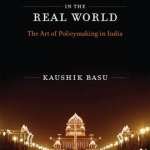
An Economist in the Real World: The Art of Policymaking in India
Book
In December 2009, the economist Kaushik Basu left the rarefied world of academic research for the...

Once in a Great City: A Detroit Story
Book
"A fascinating political, racial, economic, and cultural tapestry" (Detroit Free Press), Once in a...
ClareR (6096 KP) rated A Spell of Good Things in Books
Mar 31, 2023
Eniola is a boy who looks like a man. His schoolteacher father loses his job due to a shakeup in the education system, and falls into a deep depression. This leaves Eniola working as an errand boy for the local tailor, collecting newspapers and begging (much against his will). He wants so much more for his life, though…
Wuraola is from a wealthy family. Her parents are proud of her succeeding in her aim to be a doctor - and now they expect her to marry. And Kunle is the son of friends that they favour. But he’s volatile in private (to say the least).
We follow the stories of Eniola and Wuraola and the differences in their lives are stark. Eniola goes to school hungry, he’s beaten by the teachers because his parents pay their school fees late (if at all). And finally, he thinks he has found a way out of his poverty - when in fact it’s something far worse.
Wuraola’s life is difficult in a different way: she has a well-paid, well-respected job, but the Nigerian health system is overstretched, underfunded and doesn’t have enough doctors. But she believes in doing her duty, so she works hard, and says yes when Kunle proposes.
Wuraola’s and Eniola’s lives are on a collision course though.
I inhaled this book. It’s gritty and doesn’t hold back in any way. It’s an insight into lives I’ve never experienced and so powerfully told. The themes of domestic abuse, poverty, access to education and political corruption make for a heartbreaking read.
Recommended.
The Making of the President 2016: How Donald Trump Orchestrated a Revolution
Book
In the tradition of Theodore White's landmark books, the definitive look at how Donald J. Trump...
